In this episode of our educational video series on important subrogation topics, On Subrogation: Alternative Dispute Resolutions in Subrogation Claims, Rathbone attorney Jason Sullivan discusses paths to claims resolutions that don’t involve the courts.
Alternative dispute resolutions (ADR) are any negotiation or compromise that doesn’t involve a lawsuit. The two most common methods subrogation attorneys utilize to avoid undertaking a litigation process are mediation and arbitration.
Subrogation Mediation: Negotiating Claims by Proxy
Mediation is when the two disputing parties bring in a neutral third party to help negotiate and compromise on subrogation claims. This is most often done with the opposing parties in separate rooms; the mediator goes between rooms discussing each party’s arguments and evidence, relaying that information between the parties in order to help them negotiate indirectly.
Mediation is an informal process that can take the confrontational aspect out of a subrogation dispute, which often helps each party better understand the other’s point of view. However, it is important to note that in mediation, neither party is required to come to a resolution; there is still the option to continue to arbitration or litigation should the parties not be able to come to a compromise on the subrogated matter.
Subrogation Arbitration: Claims Resolution via Mock Trial
Choosing to arbitrate a subrogation claim is a similar process to mediation, in that, a neutral third party is brought in to help resolve the case. However, arbitration functions more like a civil trial in the court system, as the arbitrator functions as judge and jury. An arbitrator can be a person or a panel. They hear each party’s evidence on the matter and makes a decision based on the merits of the claim, including the value of any damages that should be awarded to the subrogating party.
Arbitrations can be binding or non-binding, which is something the parties will agree to in advance. The advantage of a non-binding arbitration is that you aren’t required to resolve the subrogation claim if you’re not satisfied with the decision; you are not tied to the arbitrator’s decision. A binding arbitration, on the other hand, requires each party to acquiesce to the arbitrator’s decision, no matter what it is. This might not be the best decision if one party wants to retain the right to file a later appeal.
Arbitration Forums: Arbitration Services Focused in Insurance Law
Jason discusses the most common setting in which arbitration is used when it comes to subrogation and disputing insurance companies: Arbitration Forums. Arbitration Forums is a private company for insurance carriers to resolve disputes outside of the court system, so long as they abide by Arbitration Forum’s rules.
In this setting, both parties have to be signatories on the arbitrator’s decision so that they’re both bound by the decision. Jason points out that recommended practice is to choose to be bound not claim-by-claim, but for all your subrogation cases.
Most subrogation recovery claims dealt with in Arbitration Forums are auto-related, but there are also forums for MedPay, PIP and property-related claims. There are also special forums for unique and/or complicated claims, like cases that involve a primary/secondary carrier dispute.
Seeking Alternative Dispute Resolutions Minimizes Subrogation Costs
So, why is it that insurance companies would rather use alternative dispute resolutions methods than run straight to litigation? The short answer: potential costs savings, both capital and temporal. When you choose to file a lawsuit to pursue recovery, you incur costs for subrogation counsel, court fees, trial preparation, the trial process, any later appeals, etc. Litigation can get expensive, especially if the subrogated matter is dragged out over the course of years.
Seeking alternate routes to recovery that don’t include the courts offers advantages over litigation. The subrogating carrier incurs less attorney fees because they are needed for less work and less time. Additionally, court systems, especially in certain jurisdictions, are backed up. The time between initially filing a subrogation lawsuit and it being heard in court can be months to years. With mediation or arbitration, the process is often just weeks to a few months.
Jason’s best advice for subrogating entities like insurance carriers and their counsel is to ask yourself if there is an alternative dispute resolution option available before you file a lawsuit. Even if informal negotiations were unsuccessful, it may still be worth it to try mediation and/or arbitration. The goal in pursuing recovery from a loss is to minimize the cost of that pursuit, maximizing net recovery after the claim is resolved.If you are interested in more on this and dozens of other topics on subrogation and insurance law, visit our YouTube channel or listen to our podcasts. If there is a subrogation subject you would like to know more about, email us at info@rathbonegroup.com to request an episode on that topic.
